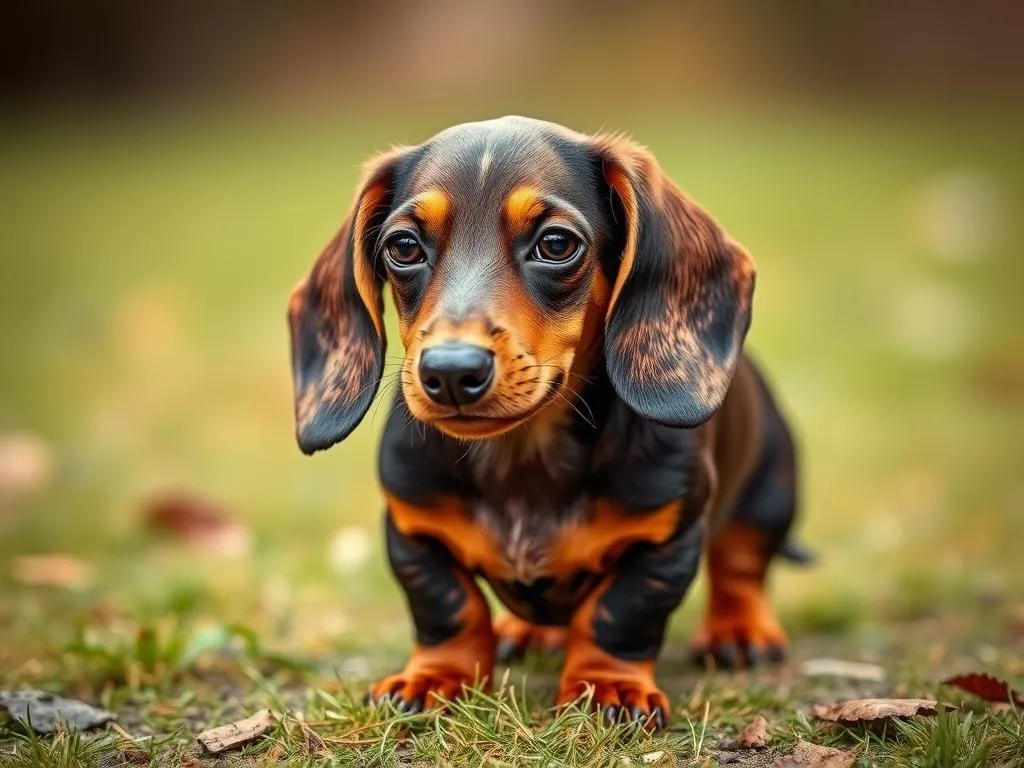
Introduction
The Miniature Dachshund is a beloved breed known for its distinct long body and short legs. Often referred to as the “wiener dog,” this breed has captured the hearts of many dog lovers around the globe. Understanding the Miniature Dachshund lifespan is crucial for potential owners, as it helps in planning for the long-term care and companionship of this adorable pet.
So, how long do Miniature Dachshunds live? On average, these dogs live between 12 to 16 years, but several factors can influence their lifespan, including genetics, health care, and lifestyle choices. In this comprehensive article, we will delve into the intricacies of the Miniature Dachshund’s lifespan and the various elements that can affect their longevity.
Understanding the Miniature Dachshund
Breed Characteristics
Miniature Dachshunds are small dogs, typically weighing between 8 to 11 pounds and standing about 5 to 6 inches tall at the shoulder. They come in three coat types: smooth, long-haired, and wire-haired, and are available in a variety of colors, including red, black and tan, and chocolate.
The breed is not just known for its looks; their temperament is equally charming. Miniature Dachshunds are often described as playful, curious, and affectionate. They tend to form strong bonds with their owners and are known for their spirited personalities.
Popularity and Ownership
The popularity of Miniature Dachshunds has surged in recent years. According to the American Kennel Club, they consistently rank among the top breeds in the U.S. This can be attributed to their adaptability to different living conditions, including apartments, and their delightful personalities. Many owners are drawn to these dogs for their unique appearance and loving nature, making them excellent companions for families and individuals alike.
Average Lifespan of Miniature Dachshunds
General Lifespan Range
As mentioned earlier, the average lifespan of a Miniature Dachshund ranges from 12 to 16 years. This lifespan is fairly standard when compared to other breeds of similar size, though it is essential to note that some larger breeds may have shorter lifespans, often living around 10 to 14 years.
Factors Affecting Lifespan
Several factors can affect how long a Miniature Dachshund lives:
- Genetics and Hereditary Conditions: Some Miniature Dachshunds may inherit genetic disorders that can impact their health and longevity.
- Size and Weight Considerations: Maintaining a healthy weight is crucial; overweight dogs are more susceptible to health issues, which can shorten their lifespan.
- Gender Differences: Research indicates that female Miniature Dachshunds tend to live slightly longer than males, though the difference is generally minimal.
Health Considerations
Common Health Issues
Like all breeds, Miniature Dachshunds are prone to specific health issues. Common problems include:
- Intervertebral Disc Disease (IVDD): Given their long backs, they are particularly susceptible to back problems, which can lead to pain and mobility issues.
- Dental Issues: Due to their small mouths, dental problems can arise, necessitating regular dental care.
Regular veterinary check-ups are vital to catch any health issues early. Preventative care can significantly enhance their quality of life and potentially extend their lifespan.
Preventative Care
Preventative care is paramount for maintaining the health of your Miniature Dachshund. This includes:
- Vaccinations: Keeping up with vaccinations helps prevent infectious diseases.
- Routine Health Screenings: Regular check-ups can help identify health problems before they escalate.
- Dental Care: Regular brushing and dental check-ups can prevent periodontal disease, which is common in small breeds.
Nutrition and Diet
Importance of a Balanced Diet
A well-balanced diet is crucial for the health and longevity of your Miniature Dachshund. They require a diet rich in high-quality proteins, healthy fats, and essential vitamins and minerals.
Recommended dog food types include:
- Dry Kibble: Often preferred for its convenience and dental benefits.
- Wet Food: Can be useful for hydration and palatability.
- Homemade Diets: Should be carefully planned to ensure all nutritional needs are met.
Obesity and Its Impact on Lifespan
Obesity is a serious concern for Miniature Dachshunds. These dogs are naturally prone to weight gain due to their small size and love of food. Excess weight can lead to various health issues, including diabetes, heart disease, and exacerbation of back problems.
To maintain a healthy weight:
- Provide regular exercise.
- Measure food portions to avoid overfeeding.
- Avoid giving too many treats.
Exercise and Lifestyle
Daily Exercise Requirements
Miniature Dachshunds require regular exercise to maintain their physical health. Daily walks and playtime are essential. Recommended routines include:
- Short Walks: 20-30 minutes daily, adapting to their energy levels.
- Playtime: Interactive games like fetch or tug-of-war can be beneficial.
Both indoor and outdoor activities are suitable, as long as they are engaging and safe.
Mental Stimulation
Mental stimulation is just as important as physical exercise. Engaging your Miniature Dachshund in activities like puzzle toys, training sessions, and interactive games can keep their minds sharp. This mental exercise can significantly contribute to their overall wellbeing and potentially extend their lifespan.
The Role of Environment in Lifespan
Safe Living Conditions
Creating a safe and secure home environment is vital for your Miniature Dachshund’s health. This includes:
- Dog-proofing: Ensuring that hazardous items are out of reach and that the living area is free from dangers.
- Safe Spaces: Providing comfortable sleeping areas and cozy spots for them to relax.
A secure environment allows your dog to thrive free from stress and anxiety, contributing positively to their lifespan.
Socialization and Interaction
Socializing your Miniature Dachshund with other pets and people is essential. Positive interactions enhance their confidence and reduce anxiety, leading to a happier and healthier life. Regular playdates and outings can improve their social skills and overall quality of life.
End-of-Life Considerations
Recognizing Signs of Aging
As your Miniature Dachshund ages, it’s important to recognize common signs such as:
- Decreased energy levels
- Changes in appetite
- Mobility issues
When you notice these signs, it’s crucial to consult with your veterinarian for guidance on managing their health.
Palliative Care and Quality of Life
For aging Miniature Dachshunds, palliative care options can help manage health issues and ensure comfort. This includes:
- Pain Management: Medications to alleviate discomfort.
- Mobility Aids: Harnesses or ramps can assist with movement.
Ensuring that your dog maintains comfort and dignity in their final years is a loving responsibility.
Conclusion
In summary, the Miniature Dachshund lifespan typically ranges from 12 to 16 years. Factors such as genetics, health care, nutrition, exercise, and environment play a significant role in influencing their longevity. As a potential owner, it’s essential to commit to responsible ownership, proactive care, and a loving environment for your Miniature Dachshund.
The joy and companionship that these delightful dogs bring to our lives are immeasurable. By understanding their needs and making informed choices, you can help ensure that your Miniature Dachshund lives a happy, healthy, and long life.









